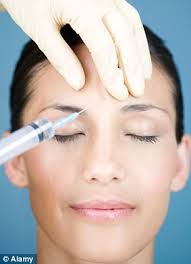Botox or Botulinum Toxin A is traditionally a cosmetic treatment used for the reduction of facial wrinkles. As a neuromodulator, Botox blocks nerves from transmitting signals between the brain and the injected muscle. When these signals are interrupted a safe, controlled weakening of the muscle results and the appearance of fine lines diminishes.
It isn’t commonly known that this specific injectable has proven in several studies to also improve major depression. Dermatologist and author of The Face of Emotion, Eric Finzi, developed a theory regarding the correlation of a patient’s mood and their outward expressions. Finzi’s research suggests that while frown muscles are responsible for portraying sadness, anger, and fear it is impossible for a patient who has been treated with Botox to physically convey these same emotions. Frowning itself reinforces feelings of negativity while suppressing a frown quiets the facial muscles associated with negativity.
“Your emotions are created, in part, by your face”, Finzi told TODAY’s, Tom Costello. For Finzi, this idea began as a young child watching his mother suffer from depression. “I will never forget the etched and furrowed brow of my depressed mother – her suffering became a memory that inspired me to try and figure out what role our facial expressions play in our mental health.”
The largest study to date revealed that 52% of patients diagnosed with moderate to severe depression found significant relief after a single Botox injection to the glabella area (between the eyes). In three double-blind placebo-controlled trials, BTA was associated with a statistically substantial reduction in depressive symptoms. More information on this particular study is found in the August 2014 issue of the Journal of Clinical Psychiatry.
Further trials are warranted to determine if Botox is indeed a viable option for depression. If larger trials can replicate earlier findings, BTA may become an innovative treatment in the management of major depressive disorder.
What are other benefits of Botox?
For anti-aging purposes, Botox is used to reduce the appearance of facial wrinkles.
Hyperhidrosis, or the condition of heavy sweating, may be treated with Botox injections at the site of perspiration.
Lastly, Botox has been employed for migraine headache relief.
Click on the link below to view a segment of Dr. Finzi on NBC’s The Today Show:
http://www.today.com/health/depressed-botox-just-might-help-you-feel-better-1D79912948
Finzi E, Rosenthal NE. Treatment of depression with onabotulinumtoxin A: a randomized, double-blind, placebo controlled trial [published online ahead of print December 16, 2013]. J Psychiatr Res.
Magid M, Reichenberg JS, Poth PE, et al. Treatment of major depressive disorder using botulinum toxin A: a 24-week randomized, double-blind, placebo-controlled study. J Clin Psychiatry [published online ahead of print May 13, 2014]. Abstract

